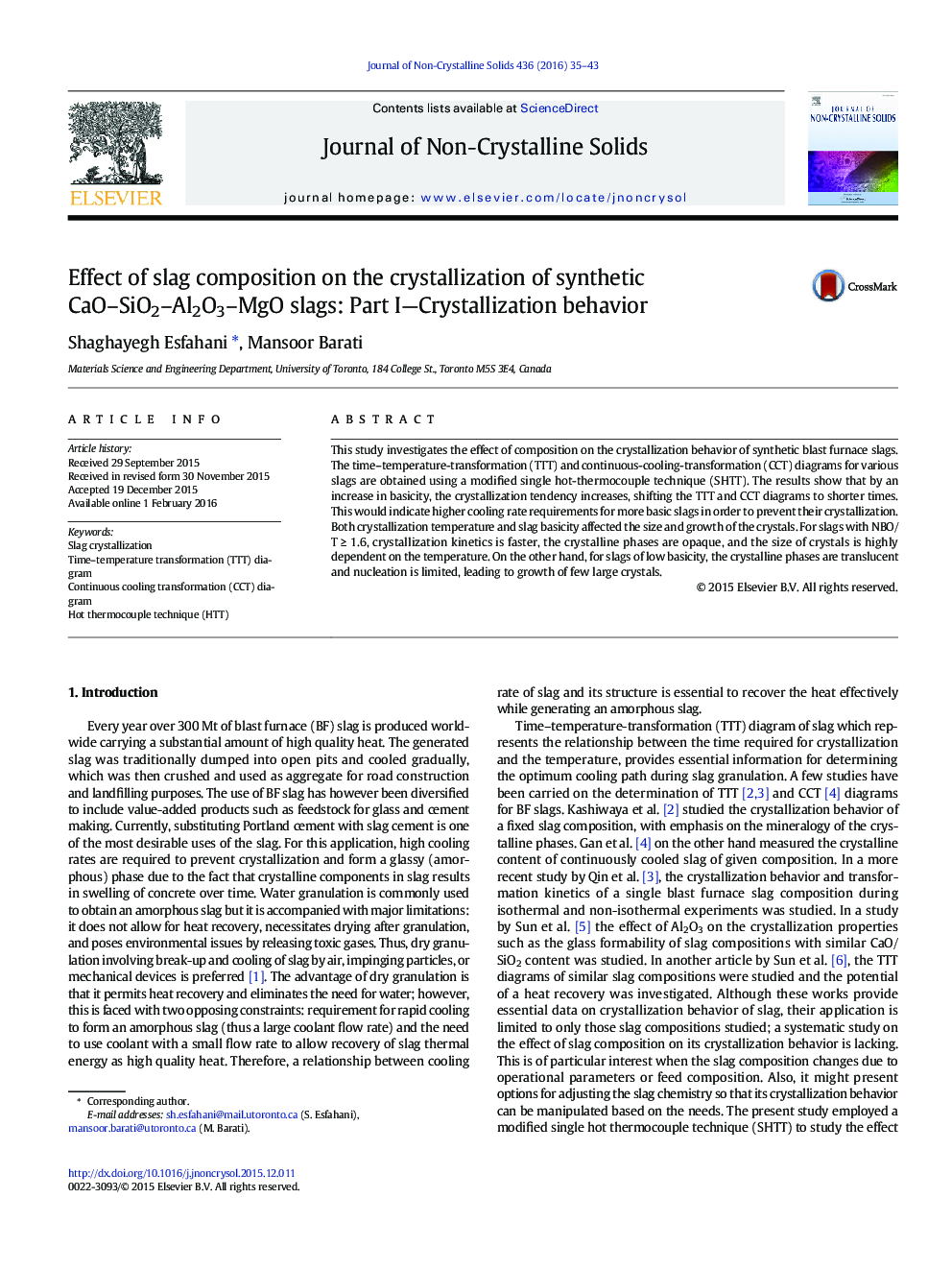| کد مقاله | کد نشریه | سال انتشار | مقاله انگلیسی | نسخه تمام متن |
|---|---|---|---|---|
| 1480384 | 1510409 | 2016 | 9 صفحه PDF | دانلود رایگان |

• With an increase in basicity, the TTT and CCT diagrams of glassy to crystalline transformation shift to the left (shorter time) and to higher temperatures.
• Crystallization features at higher basicity are faster crystallization and opaque crystalline phases, whereas for lower basicity the crystals are translucent.
• For slags with NBO/T ≥ 1.6, equiaxed crystals are formed at high temperatures.
• As the temperature drops, first planar, and then again fine equiaxed crystals become the predominant morphology.
• For slags with NBO/T < 1.6, crystallization involves the growth of very few crystals that grow to complete the process.
This study investigates the effect of composition on the crystallization behavior of synthetic blast furnace slags. The time–temperature-transformation (TTT) and continuous-cooling-transformation (CCT) diagrams for various slags are obtained using a modified single hot-thermocouple technique (SHTT). The results show that by an increase in basicity, the crystallization tendency increases, shifting the TTT and CCT diagrams to shorter times. This would indicate higher cooling rate requirements for more basic slags in order to prevent their crystallization. Both crystallization temperature and slag basicity affected the size and growth of the crystals. For slags with NBO/T ≥ 1.6, crystallization kinetics is faster, the crystalline phases are opaque, and the size of crystals is highly dependent on the temperature. On the other hand, for slags of low basicity, the crystalline phases are translucent and nucleation is limited, leading to growth of few large crystals.
Journal: Journal of Non-Crystalline Solids - Volume 436, 15 March 2016, Pages 35–43